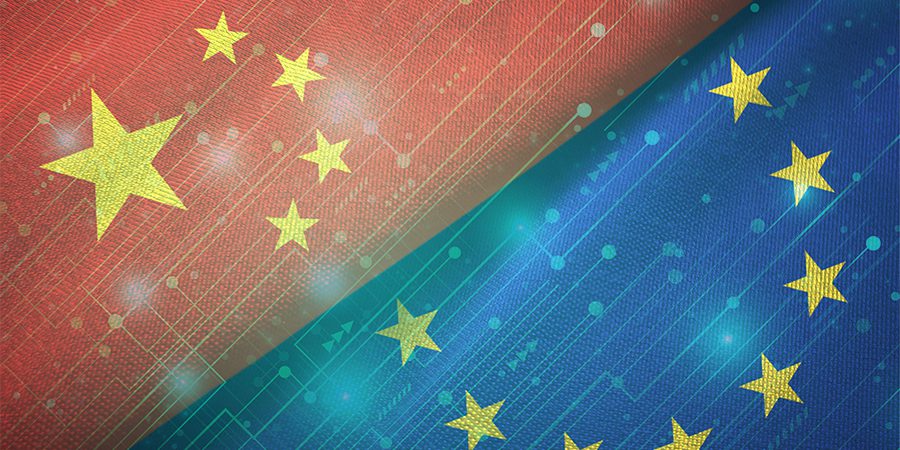Subscribe
"Unlock exclusive insights and elevate your financial wisdom with NetWorth.com — subscribe now to stay ahead in the wealth game!"

In this article, we’ll look at the reasons behind the European Union’s decision to introduce restrictions on Chinese green technology imports and how these measures might impact the future of green tech adoption in the region.
Key Takeaways:
Brussels is set to announce limitations on the import of Chinese green technologies, making it more challenging for Chinese companies to win public contracts and for buyers to obtain subsidies.
This move comes as part of the European Commission’s efforts to address China’s growing influence in supplying green products such as solar panels and heat pumps.
According to a draft of the Net Zero Industry Act seen by the Financial Times, public procurement bids involving products from a country with over 65% EU market share would be downgraded.
This rule would also apply to government programs subsidizing consumer purchases, with China being a prime example.
European Commission President Ursula von der Leyen has called for the EU to “de-risk” its exposure to China, as Brussels seeks to reduce dependency on Chinese manufactured goods and aligns itself more closely with the United States’ stance on the Chinese government.
However, the European Commission’s trade directorate has expressed concerns that the proposed changes to the public procurement rule book may breach international laws.
Compliance with World Trade Organization (WTO) obligations and government procurement agreement obligations is essential to prevent these measures from being considered green protectionism.
The draft proposal emphasizes the importance of a diversified supply, stating that a single third country supplying over 65% of demand for specific net-zero technology within the union would be deemed insufficiently diversified.
Tenders’ environmental sustainability would also be assessed, potentially counting against Chinese imports.
Brussels plans to increase EU production of green technologies to 40% by 2030 by intervening in the market.
The European Commission also intends to support the development of carbon capture technology by requiring large oil and gas extractors to commit to storing up to 50 million tonnes of CO₂ annually by 2030, with individual targets assigned to each company.
A separate proposal is aimed at promoting domestic mining of lithium and other minerals essential for green technology.
Brussels plans to introduce stricter environmental measures to limit imports, according to a draft version of the text that is yet to be finalized.
Once the European Commission publishes its proposals, the European Parliament and member states must agree before they become law, a process that can take up to two years.
China has already requested that European countries implementing significant environmental trade measures submit a written report to the WTO to discuss their legal basis, impact on trade, consistency with international rules, and potential effects on developing countries.
The EU’s decision to curb imports of Chinese green technology comes amid a broader reevaluation of the trade dynamics between the two economic powerhouses.
The European Union is seeking new ways to monitor European companies’ investments in overseas production facilities, limiting China’s ability to acquire advanced technologies from the West.
China’s increasing dominance in green technology has raised concerns among European policymakers.
China is responsible for over 90% of some solar panel components and is expanding its influence in other supply chains, including wind turbine production and electric vehicles.
This growing dependence on Chinese clean technology has led EU officials to recognize the need for reducing reliance on Russian gas and Chinese green tech.
The proposed measures aim to promote the EU green tech industry, focusing on sectors where it remains competitive, such as wind turbines and heat pumps.
The draft of the Net Zero Industry Act warns that the EU’s trade balance in these sectors is deteriorating due to rising energy and input costs for European manufacturers.
By implementing these new policies, Brussels hopes to reverse this trend and support the growth of the European green tech industry.
While the EU seeks to limit Chinese green tech imports, it must also balance its environmental goals with economic interests.
Ensuring that the new measures do not inadvertently make the green transition more expensive for private companies and taxpayers is crucial.
Striking this balance will require close cooperation among EU member states and adherence to international trade rules and obligations.
As the European Commission prepares to unveil its proposals, the future of Chinese green tech imports remains uncertain.
The potential impact on the green technology market, trade relations between the EU and China, and the broader implications for the global fight against climate change will depend on the final version of the proposed legislation and the outcome of negotiations between EU member states and the European Parliament.
It is evident that as the world moves towards a greener future, competition for market share in the green technology sector will intensify.
Whether the EU’s efforts to limit Chinese imports will ultimately benefit European green tech companies and foster domestic innovation remains to be seen.